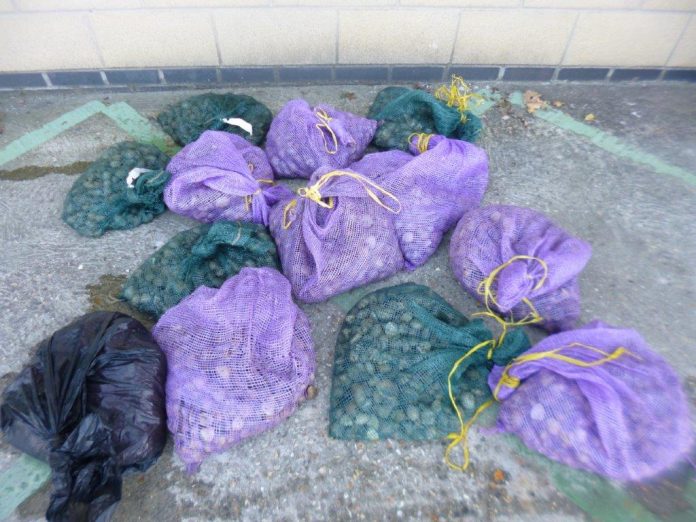Richard Carlyle aged 74 of Portland, Dorset, was today (29/3) sentenced to 11 months in jail, suspended for two years, and banned from taking part in any shellfish business.
He appeared at Bournemouth Crown Court after admitting two offences under the Fraud Act 2006 and one under the Food Safety and Hygiene (England) Regulations 2013. He was also subject to a Hygiene Prohibition Order which prevents him from taking part in shellfish business.
£44,000 worth of untraceable clams
The offences related to the use of 76 shellfish registration documents, completed by the defendant, which contained false information and to the supply of 34 batches of manila clams with a false approval mark. The offences took place from April 2016 to October 2017 and enabled over £44,000 worth of untraceable clams to enter the food chain.
In October 2017 officers of the Southern Inshore Fisheries and Conservation Authority were carrying out an inspection of shellfish and found undersized manila clams which were accompanied by an approval mark which looked suspicious.
Officers from Weymouth and Portland Borough Council were called and a joint investigation with Dorset County Council Trading Standards Service began.
They found that, despite extensive advice in March 2016, by April 2016 the defendant had started completing shellfish registration documents with false information and he carried on doing this right through to October 2017. On these he claimed that he was the gatherer of the manila clams and that they came from Devon. When interviewed he claimed that the clams were delivered overnight by unknown persons into his van.
Officers also found that on 34 occasions the defendant had used an approval mark which claimed that some of the clams had been processed at an approved processor. Without this mark, other food businesses would not accept the clams. The processor had never supplied Mr Carlyle with clams in the period concerned and again their origin was unknown.
Sentencing, his honour Judge Crabtree said that Carlyle had circumvented the food safety regulations for his own benefit, despite the risks to public health and to his customers and that he had hindered the investigation by failing to disclose the true source of the clams.
In suspending the sentence, the judge took into account Carlyle’s previous good character, his health and the fact that he is a carer for his mother.
Richard Herringshaw Principal Trading Standards Officer for Dorset County Council said: “The risks to food safety from contaminants by live shellfish are well known to food businesses operating in the live shellfish industry. They have obligations to know that the live shellfish they are supplying have come from a legitimate source, that they have been processed correctly and to inform their customers of this.
“By operating in this way Richard Carlyle avoided food safety requirements, put consumers at risk, undermined the legitimate industry and inhibited our ability to trace the food and investigate risks to health. A large number of items were produced to make these clams appear legal to authorities and prospective purchasers. Without these documents the clams were worthless.
We will always investigate and ensure appropriate cases like this are brought before the courts.”
The full sentence was:
- 11 months , 3 months and 4 months imprisonment for each offence to run concurrently suspended for 2 years;
- a 12 week curfew from 8pm to 6am; and
- an indeterminate Prohibition Order under the Food Safety and Hygiene (England) Regulations 2013.
Carlyle had already made a £7,500 contribution to the prosecutions cost.
The national Citizens Advice Consumer Service is the first point of contact for consumers needing to contact trading standards.







